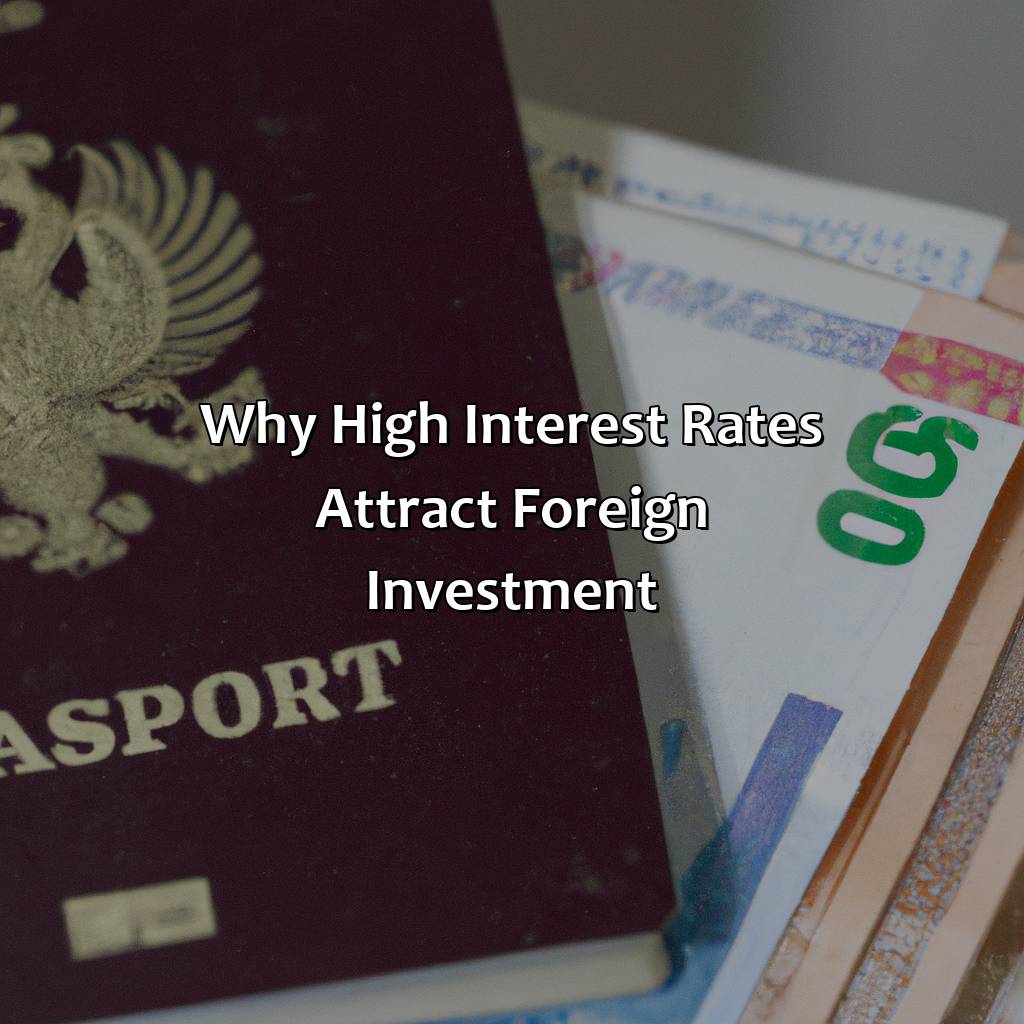Why High Interest Rates Attract Foreign Investment?
Key Takeaway:
- High interest rates attract foreign investments because they offer higher returns on investments compared to other countries with lower interest rates.
- A stronger currency is another benefit of high interest rates as it makes the country’s assets more valuable to foreign investors.
- A stable economy is also an attractive factor for foreign investors as they want to minimize their risk and ensure their returns are safe.
Are you wondering why foreign investors are attracted to high interest rates? This article provides key insights into why the global economy shifts towards countries with high interest rates. You’ll learn how higher interest rates drive investments, and how this impacts the global economy.
The Meaning of High Interest Rates
High Interest Rates – How Does It Attract Foreign Investment?
High interest rates refer to the cost of borrowing money. In the context of foreign investment, high interest rates mean that the return on investment is also high. This is because investors can earn a higher profit when they invest in countries with higher interest rates, which is an attractive option for foreign investors.
When a country increases its interest rates, it creates a more favorable environment for foreign investors. These investors are enticed to invest in that country’s economy since they can earn higher returns on their investments. Furthermore, high interest rates signal a stable economic environment, which makes foreign investors feel comfortable investing in that country.
Moreover, high interest rates also lead to a stronger currency, which again, is an attractive option for investors. This can lead to more foreign investment, which in turn can help the country’s economy grow.
To encourage more foreign investment, governments can offer incentives, such as tax breaks or reduced regulatory requirements. Additionally, governments can provide a stable political environment and maintain economic stability, which will further attract foreign investors.
Therefore, as interest rates rise, foreign investment usually increases as well, which ultimately benefits the country’s economy in the long run.
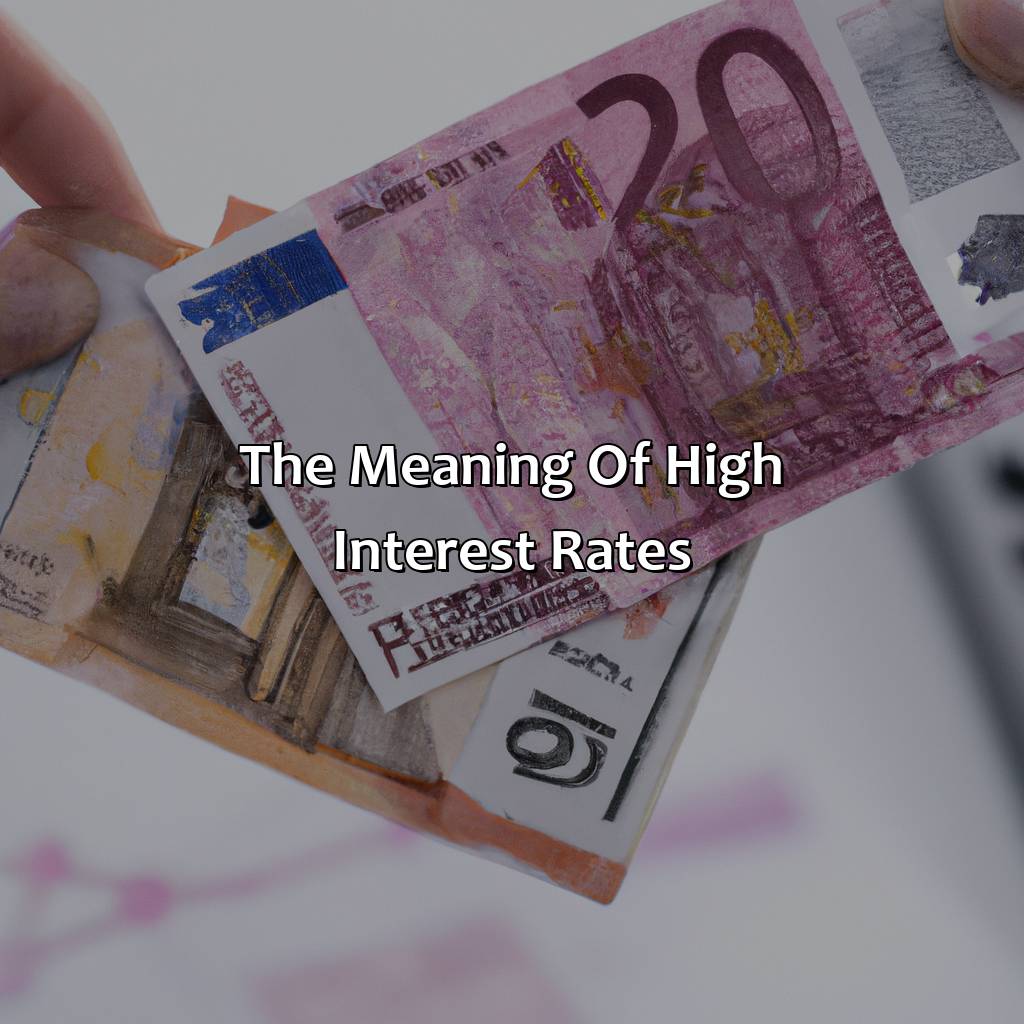
Image credits: retiregenz.com by David Woodhock
Why Do High Interest Rates Attract Foreign Investment?
Foreign investors are drawn towards high interest rates because of the potential for higher returns on their investments. When interest rates are higher, it means that they can earn more money on the money they invest. This is because high interest rates signal a strong economy and lower risk. As a result, investors are more willing to invest their money in that country. Higher interest rates also make the currency of that country more attractive, creating demand from other countries which can further boost the economy.
Moreover, the increase in foreign investment can help to stimulate economic growth. When foreign investors bring in more money, they create job opportunities which in turn, increases productivity leading to economic growth. In addition, this foreign investment can also provide access to new technology, which can help improve infrastructure, leading to greater efficiency and productivity in the long run.
One example of high interest rates increasing foreign investment is the case of Brazil. In the early 2000s, the country struggled with inflation, prompting the central bank to increase interest rates significantly. This move attracted foreign investors who saw an opportunity to earn good returns on their investments. As a result, Brazil’s economy grew, and the country became a popular destination for foreign direct investment.
Overall, high interest rates remain an essential factor in attracting foreign investment because it signals a healthy and strong economy, creating more opportunities for investors to earn favorable returns. Additionally, foreign investment can provide significant benefits to the host country, including job creation, access to new capital, and increased technological advancements.
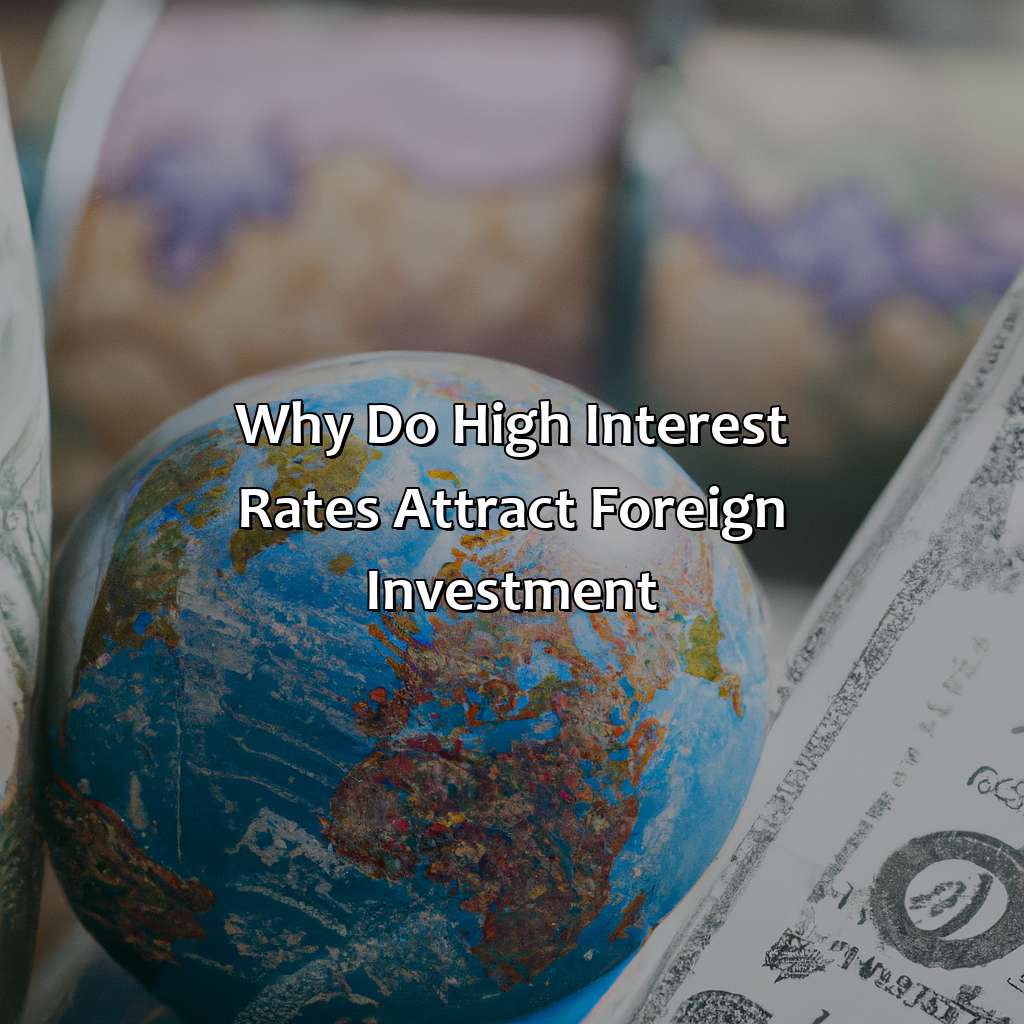
Image credits: retiregenz.com by Harry Washington
Factors That Can Influence Foreign Investment
Foreign investment is influenced by various factors, one of which is the economic environment of the host country. A favorable environment can attract foreign investors, and one of the key indicators of a good economic environment is high interest rates. When interest rates are high, investors can earn higher returns on their investments, which is particularly attractive to those seeking short-term gains. Additionally, higher interest rates can indicate strong economic growth, increasing the potential for long-term returns. This makes the host country an attractive destination for foreign investors.
Another factor that can influence foreign investment is political stability. A stable government and economy can provide a predictable environment for investors, reducing their risk and increasing their confidence in investing. Foreign investors often prefer countries with stable political and economic environments, as these are less prone to sudden changes that can negatively impact their investments.
When it comes to attracting foreign investments, it’s essential to understand the unique needs and preferences of investors. For example, some investors prioritize environmental sustainability and corporate social responsibility in their investment decisions. Governments that prioritize sustainability and social responsibility can attract such investors, thereby increasing their chances of success in attracting foreign investments.
According to a report by the United Nations Conference on Trade and Development, there was a 12% increase in foreign direct investment (FDI) worldwide in 2019, reaching $1.5 trillion. FDI in developing economies increased by 10%, with Asia being the top region attracting FDI.
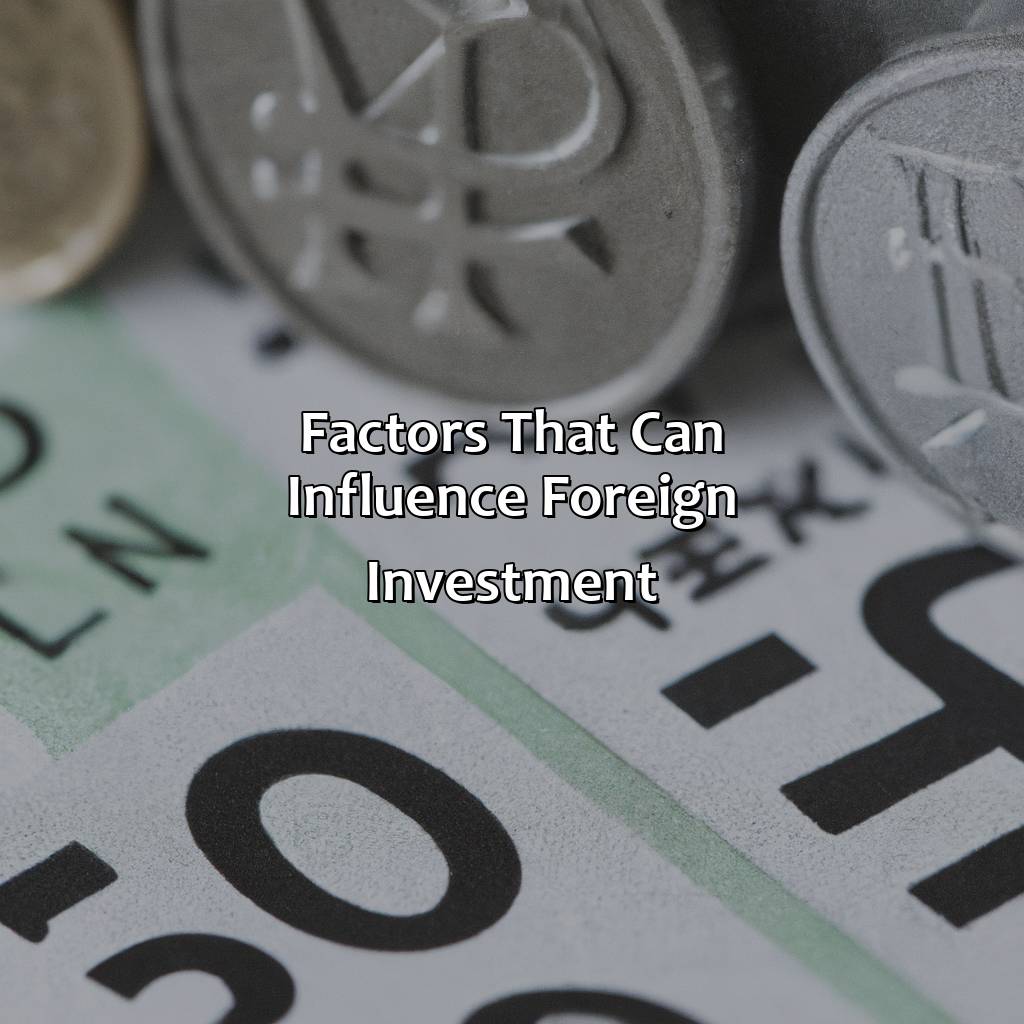
Image credits: retiregenz.com by James Duncun
The Downside of High Interest Rates on Domestic Investments
As domestic investors are hesitant to invest in high-interest rate markets due to increased borrowing costs, it leads to a slowdown in domestic investment. This can affect emerging economies and can result in a decline in overall economic growth and development.
Moreover, high-interest rates can lead to an increase in the value of the domestic currency. This can further discourage foreign investment as it becomes more expensive to buy into the market. Additionally, this can lead to a decrease in exports, as the cost of domestic goods becomes more expensive for overseas buyers.
It is important to note that while high-interest rates can attract foreign investment, it is not a foolproof strategy. A sudden change in market conditions or external shocks can quickly reverse the trend.
In a similar vein, during the 1990s, India implemented high-interest rates to attract foreign capital. However, this resulted in a current account deficit and a balance of payment crisis. It highlights the importance of striking a balance between attracting foreign investment and ensuring long-term stability.
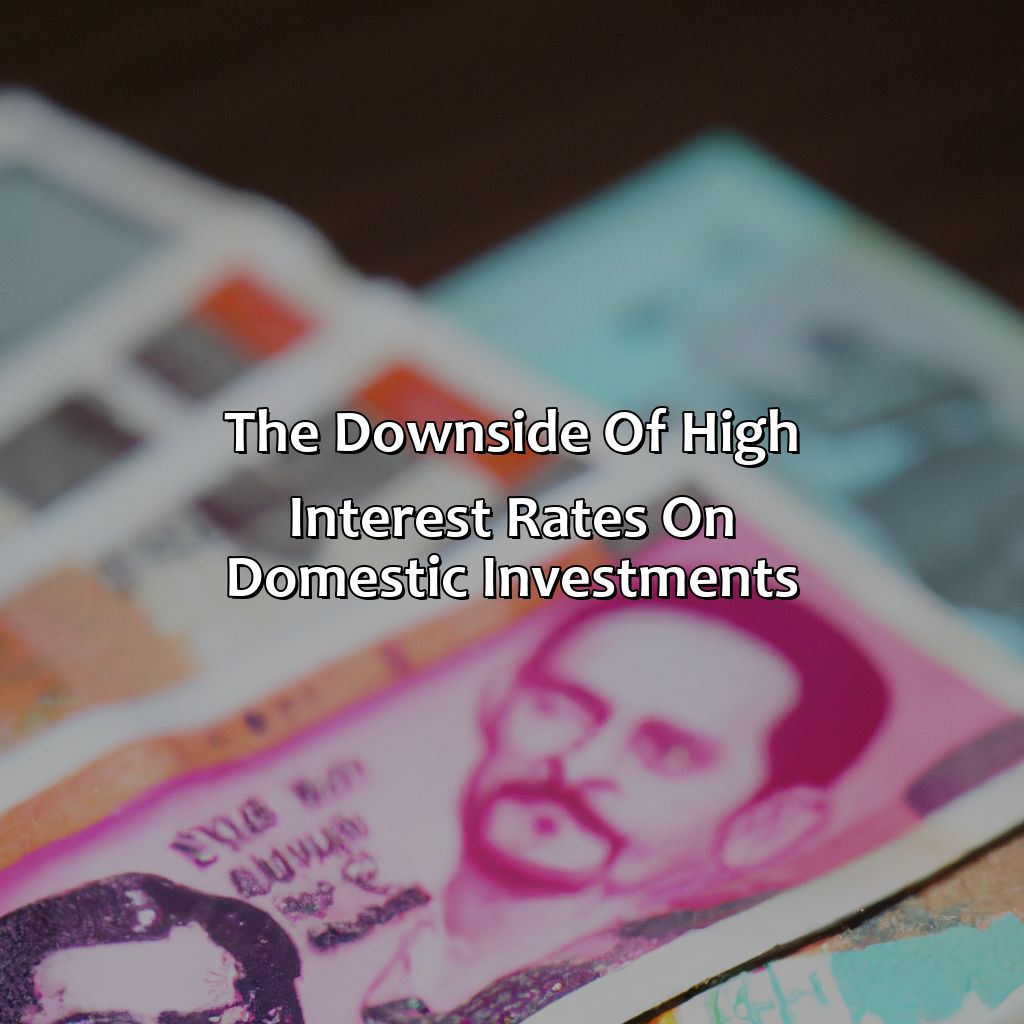
Image credits: retiregenz.com by David Duncun
Five Facts About Why High Interest Rates Attract Foreign Investment:
High interest rates offer the possibility of greater returns on investment. (Source: The Balance)
High interest rates signal a strong economy and stable political environment, making a country attractive to foreign investors. (Source: Forbes)
Foreign investors can take advantage of fluctuations in exchange rates to increase their returns on investment in high interest rate countries. (Source: Investopedia)
High interest rates encourage borrowing and investment within a country, stimulating economic growth. (Source: Business Insider)
However, high interest rates can also lead to inflation and a decrease in consumer spending. (Source: The Balance)
FAQs about Why High Interest Rates Attract Foreign Investment?
Why do high interest rates attract foreign investment?
High interest rates essentially make it more profitable for foreign investors to put their money into a particular country. This is because they can earn a higher return on their investment due to the higher interest rates, leading to an increase in demand for that country’s currency and securities. As a result, the country receives more foreign investment.
What are the benefits of foreign investment for a country?
Foreign investment can bring in much-needed capital for a country’s businesses and industries. This can lead to economic growth, job creation, and a boost in tax revenue for the government. Additionally, foreign investment can bring in new technology and expertise that can help improve a country’s infrastructure and productivity.
What are the risks associated with high interest rates?
One of the main risks of high interest rates is that they can lead to a decrease in consumer and business spending, which can hurt economic growth. Additionally, high interest rates can also lead to an increase in borrowing costs for both individuals and businesses, which can make it harder for them to access credit.
Can high interest rates attract foreign investment even in a weaker economy?
Yes. Although a country with a weaker economy may not seem as attractive to foreign investors, high interest rates can still make it more profitable for them to invest in that country. Additionally, foreign investors may see potential for growth and recovery in a weaker economy, leading them to invest in the country in hopes of earning higher returns in the future.
Are there any downsides to relying too heavily on foreign investment?
Yes. Relying too heavily on foreign investment can make a country vulnerable to sudden shifts in the global market. If foreign investors decide to pull their money out of a country, it can lead to a sudden drop in the value of that country’s currency and securities. Additionally, foreign investment can sometimes lead to a loss of control over a country’s industries and resources.
Do all countries use high interest rates to attract foreign investment?
No. Although high interest rates can be an effective way to attract foreign investment, not all countries choose to use this approach. Some countries may opt to use other incentives, such as tax breaks or subsidies, to encourage foreign investment instead.
 Checkout this IRS Loophole
Checkout this IRS Loophole 
